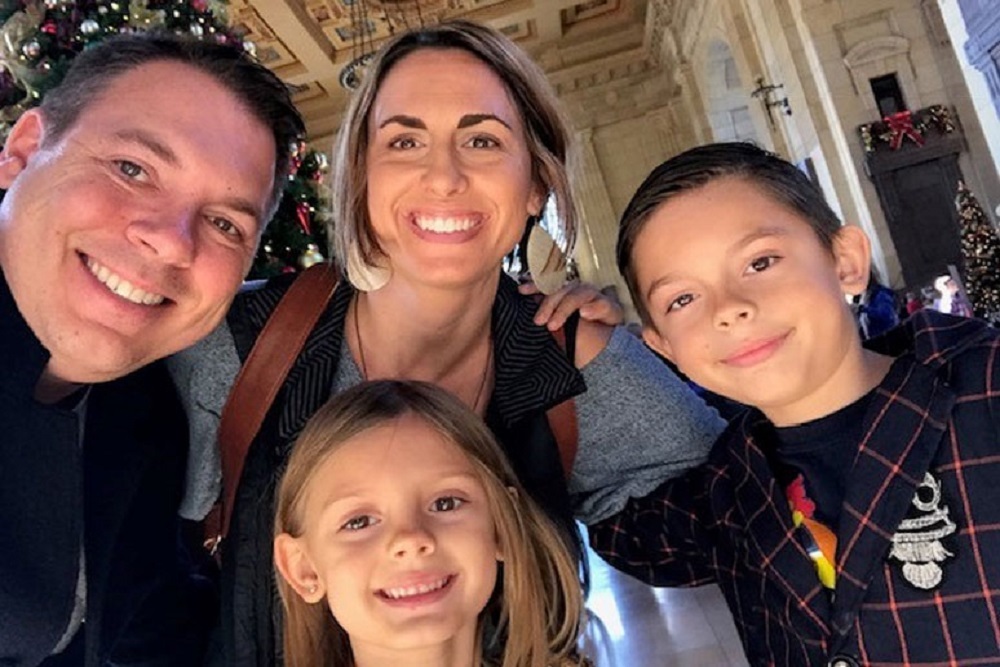State Farm Insurance recently issued the following announcement on July 17.
Teachers are trained to identify and work with children with learning disabilities. If the teacher feels the student needs extra attention, they are prescribed special classes, educators and curriculum.
That’s not the case with dyslexia.
The learning disability is best known as children reading letters out of order. But, it is actually a disability where readers have trouble matching the letters they see with the sounds those letters and combinations of letters make. This affects a child’s ability to read fluently, spell words correctly, learn a second language and much more.
Many teachers do not receive education or specific cues to look for when it comes to dyslexia, and therefore numerous children progress through the education system struggling with reading and writing their entire lives.
This was the case for Nick and Katie Reed’s children.
“Our youngest was 4 when we first noticed she was having trouble. She turned out to be severely dyslexic,” says Katie, who works in her husband’s office. He is a State Farm® agent in Shawnee, Kan. “In preschool, the students would work on one letter all week, and she would have no idea what the letter was at the end of the week. We were reading and practicing at home and nothing was clicking. Everything else was developing on track, but something about letters wasn’t clicking.”
Katie began doing research. She found a specialist in learning disabilities to see her daughter, Josie. After further testing and assessing, Josie was deemed at a high risk for dyslexia.
“We started reading about it and went to the school district expecting them to help us on this journey. The school district said they weren’t able to help because she technically doesn’t need to know her letters until kindergarten,” Katie says.
At this time, Katie and Nick began to realize their older son, Spencer, was showing signs of dyslexia. Dyslexia is hereditary and if one child has it, there’s a 50 percent chance another child will be diagnosed. Spencer was taken to the same specialist and he was diagnosed dyslexic.
“We brought that information to the school and they still said just because you have a diagnosis, doesn’t mean the student needs help. Basically, your kid has to be failing in order to get help,” Katie says.
Nick adds, “Dyslexia isn’t something you can see like other disabilities. They have to have parameters around it – they could just be slow learners, not dyslexic. This brought on the question, as a parent, do we wait for them to fail or do we do something to fix it without support of the state school board?”
In November 2017, Nick and other State Farm associates met with Kansas Rep. Tom Cox to discuss insurance legislation. During that conversation, Nick discovered he and Katie faced a similar struggle with the representative. Tom struggled with mild dyslexia as a child. He agreed to co-author and introduce legislation to address the issue of dyslexia. Instead of immediate legislation, a task force was created.
The Kansas Dyslexia Legislative Task Force began meetings this month. Findings and recommendations are expected in January 2019.
“I had a first grade teacher who noticed I was struggling to read out loud and called my parents. My parents were lucky they had the ability to get me tested,” says Tom. “I'm very conscious of the kids who don't have that. That's what led me to work on this and talk to parents like the Reeds. We need to make sure our teachers, parents and everyone is informed on this topic and identifying it early and creating a system, culture and structure in our education system that embraces that.”
Katie and Nick know they are lucky to have the ability to get their kids the support they need outside of their school district. “It’s expensive. There are families who don’t know about dyslexia and don’t know why their kids are struggling. They don’t have a strong advocate for them,” she says.
Nick adds, “Our family had been going through it for a couple years just to help our kids. We acknowledged that we had to do this ourselves. State Farm agents are part of their communities. This experience has shown that State Farm connections help not only with insurance issues, but people like us who identified a problem but didn’t know what to do.
“If there’s a call to action, I encourage my peers to be active in their communities. If there is something you see that needs to be changed, use your connections to start the process.”
The Reeds hope the task force will address appropriate screenings for teachers, tools for remediation, appropriate avenues to help children and ensure education majors in college have courses for teachers to help spot dyslexia and teach them how to work with dyslexic children in the classroom.
Original source can be found here.












 Alerts Sign-up
Alerts Sign-up